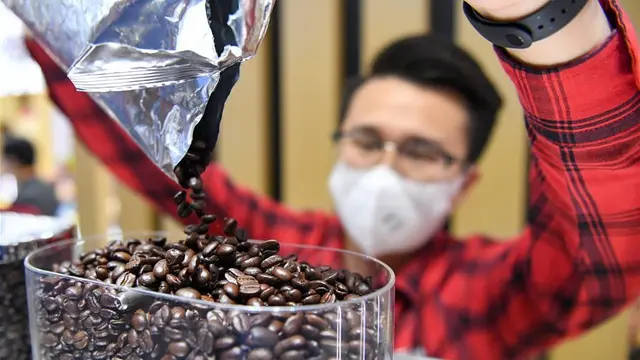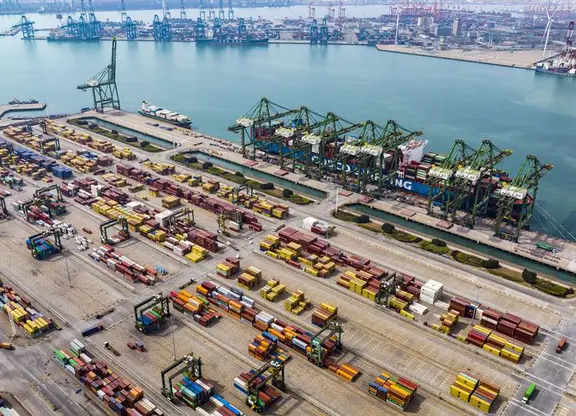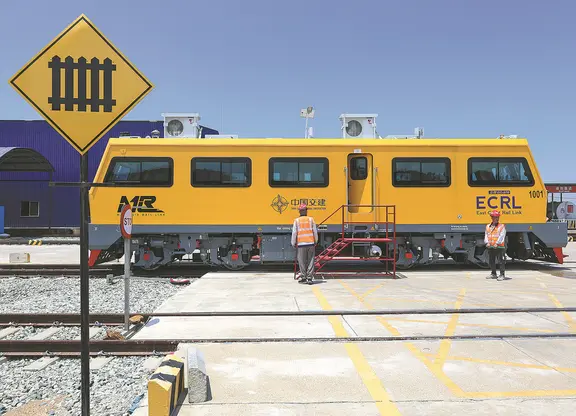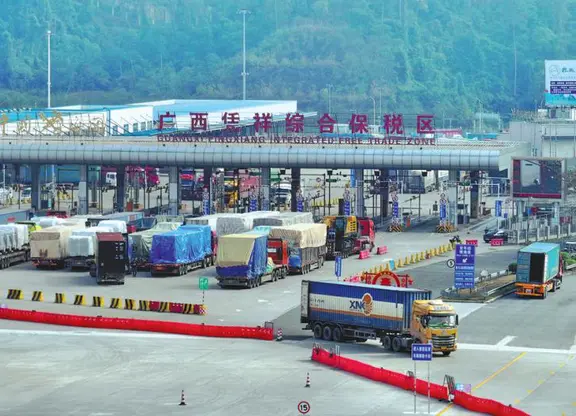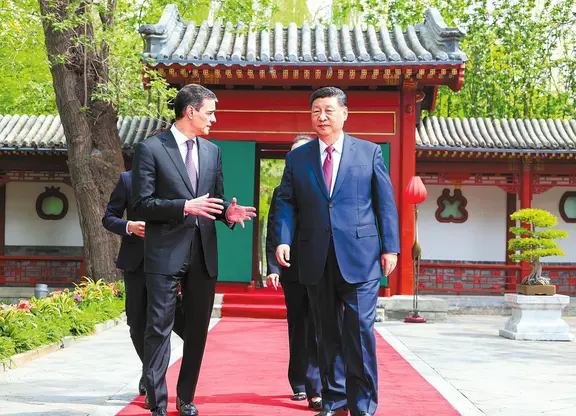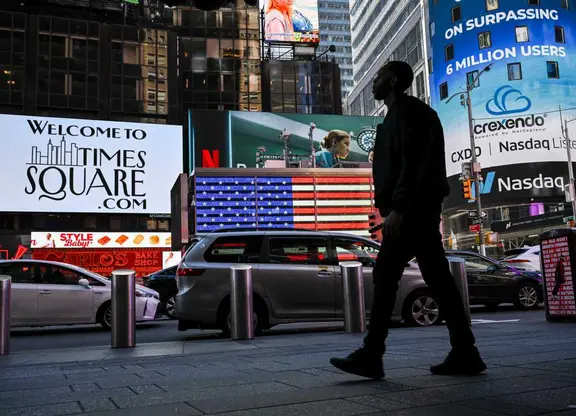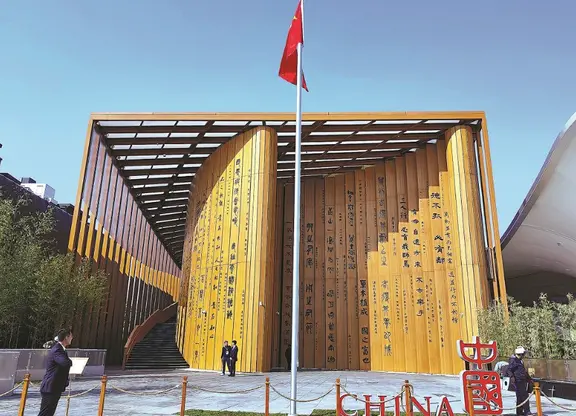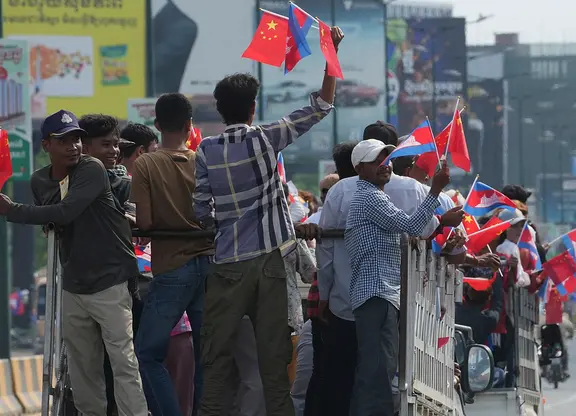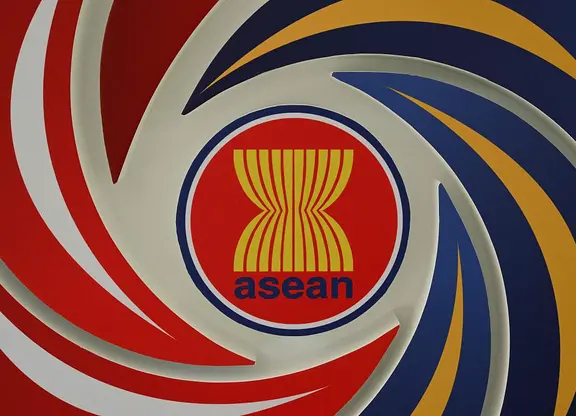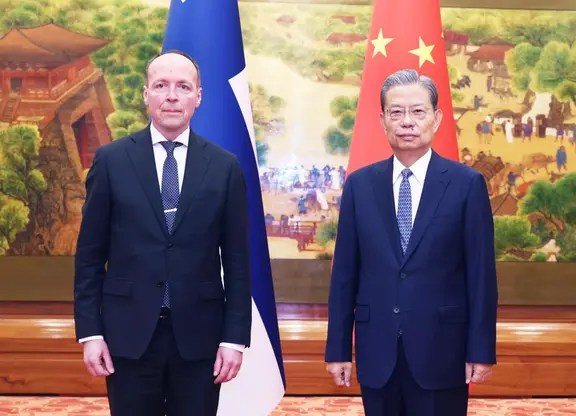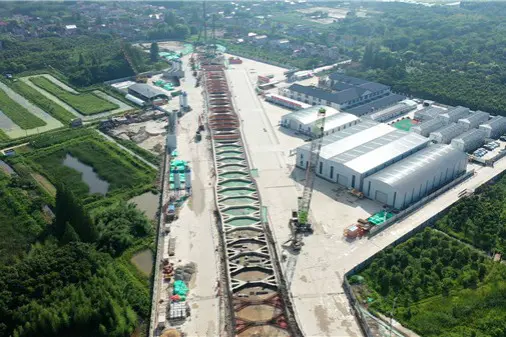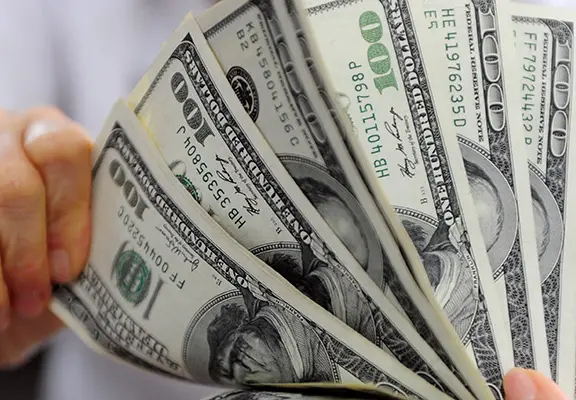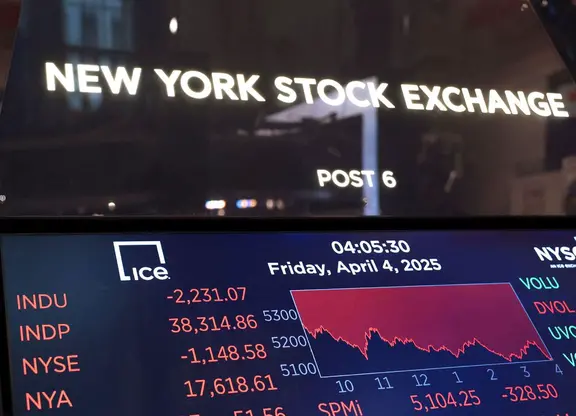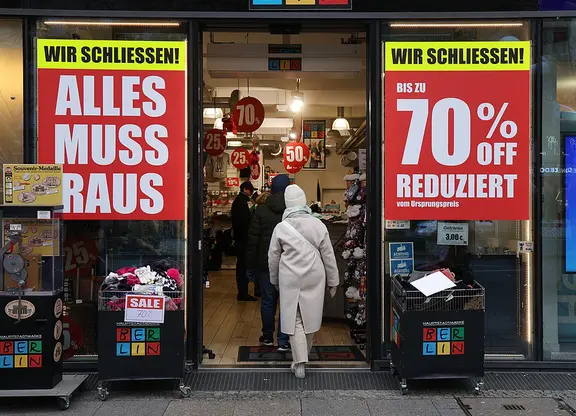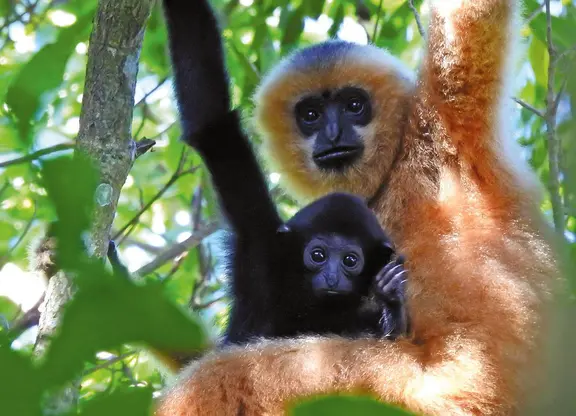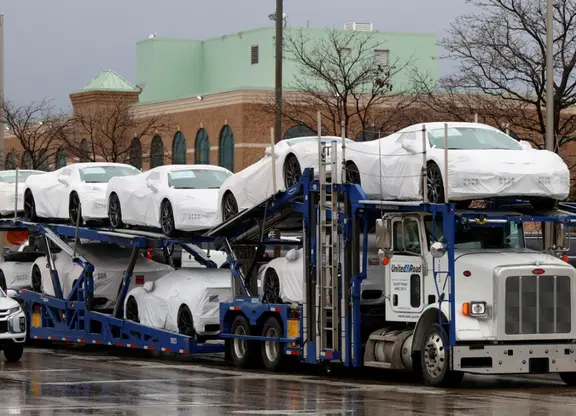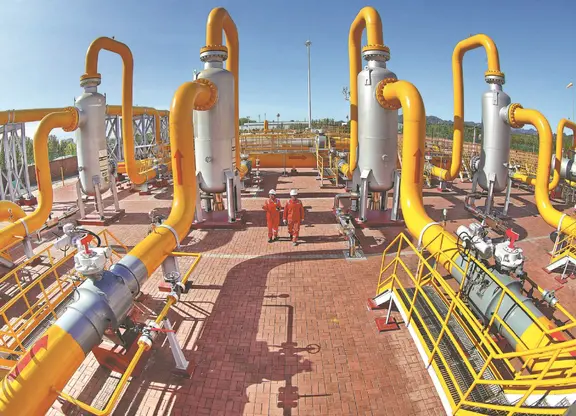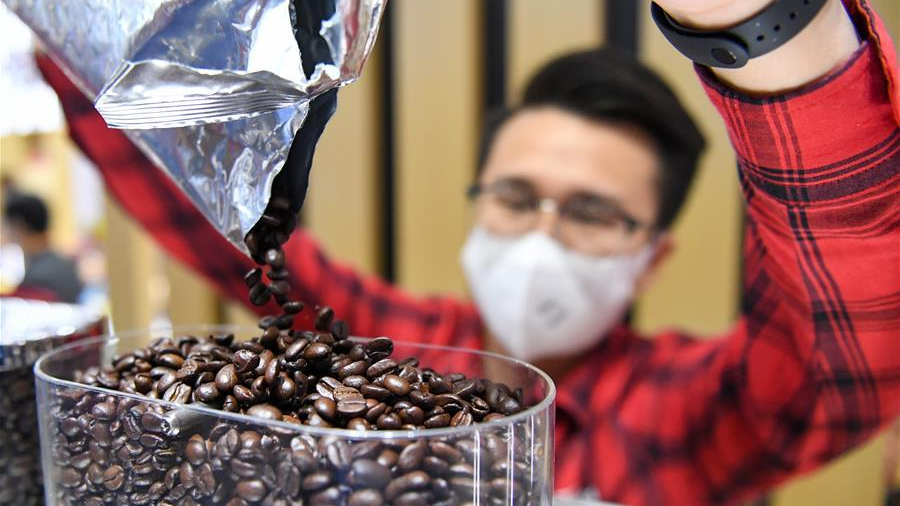
The booth of Canadian fast-food restaurant chain Tim Hortons at the Food and Agricultural Products exhibition area during the third CIIE in Shanghai, eastern China, November 5, 2020. /Xinhua
**Editor's note: **Iram Khan is a Pakistan-based commentator on international affairs.The article reflects the author's opinions and not necessarily the views of CGTN.
Efforts are at hand around the world to revive international trade after it ground to a halt in the face of the COVID-19 pandemic. When China decided to go ahead with holding the third China International Import Expo (CIIE), few traders were optimistic about the event.
But the event kicked off without a hitch today with over 2,000 foreign companies in an exhibition area larger than last year's. All doubts about the event have also been put to rest, thanks to the Chinese government's impressive pandemic containment.
The Chinese economy has rebounded, and so has domestic consumption. Independent institutions have also acknowledged that China is the only economy that continues to show positive growth in 2020 despite COVID-19 induced losses.
This optimism now needs to be expanded beyond China. President Xi Jinping, in his keynote speech at the CIIE's opening, said this year's expo is special for this very reason. The market opportunities made available in China are being shared with the rest of the world so that the global economy can be put on the path to recovery.
As businesses in China reach pre-pandemic levels, other countries can reap all possible benefits from this development. By using the CIIE to strengthen their foothold, multinationals can use the profits earned in China to support their home countries' economies. At the individual level, the remittances from the executives and employees of these companies will help provide much needed financial support. China, in turn, will see the circulation of capital and new vigor in its economy.
China has since long transformed from the manufacturing powerhouse of the world to the main engine of global growth. This places an added responsibility on the country: pulling the world along in its quest for economic recovery.
President Xi touched upon an important aspect of tackling the challenges in this path. He also called for a commitment to mutual opening up among countries to make forward strides against the problems of the past.
The concept of mutual opening up entails shared benefits for all those who wish to undertake joint efforts. It requires a spirit of solidarity and cooperation by building trust and consulting with others.
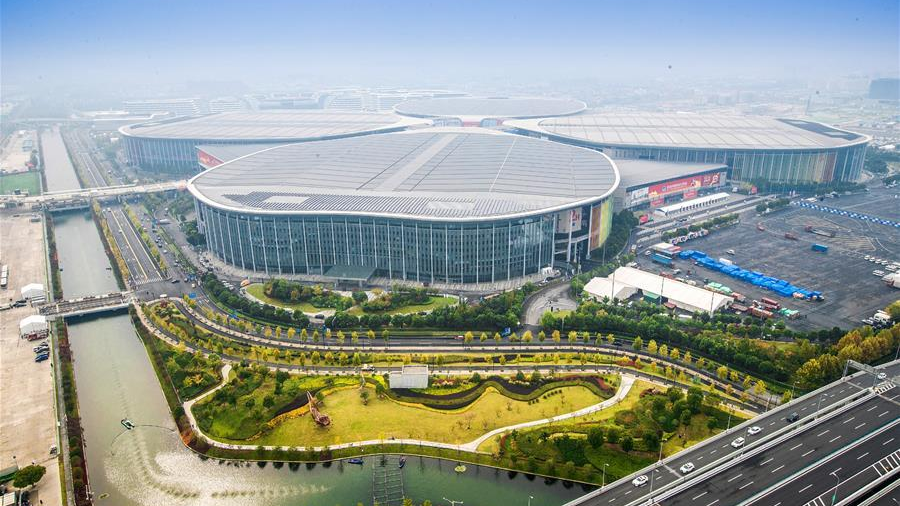
A view of the National Exhibition and Convention Center, the main venue of the 3rd China International Import Expo, Shanghai, November 3, 2020. /Xinhua
Consequently, no nation will be left behind, as the benefits will be shared by all. China is already pursuing several programs in this regard, the most prominent of which is the Belt and Road Initiative (BRI). Just as the BRI is an inclusive project, China's domestic market also remains open for the world. Whether large or small, all economies can benefit from the possibilities the Chinese market offers.
With shared benefits come shared responsibilities, and care must be taken that benefits are not attained at others' expense. As President Xi highlighted, developed countries have to lead by example, and the developing ones have to actively open up and share the responsibility with the international community.
Mutual opening up will also give rise to a shared system of governance. Although unilateralism and protectionism were affecting global trade before the pandemic, the space for allowing such tendencies has now shrunk.
A rules-based international order allows the conduct of trade in a transparent manner, and thus multilateral organizations have to be respected. The World Trade Organization (WTO) has a major role in the growth of and the smooth flow of international trade. The CIIE, therefore, acts as a much-needed reiteration of the need for the free flow of goods across borders.
As this flow reignites, China will turn into a market for the entire world – shared by all and accessible to all. As outlined by President Xi, this would require four basic prerequisites.
The first is setting the pace for the country's opening up through free trade zones and allowing foreign ventures in all sectors while maintaining a short negative list. The second is using creative ways to grow foreign trade, of which the CIIE is the most prominent example. The third is adopting a friendly business environment that makes the legal framework open and transparent, and the fourth is the strengthening of bilateral, multilateral and regional cooperation.
The message that the CIIE gives this year is that China is ready to work with other countries to help them overcome the economic setbacks of the COVID-19 health emergency. Having successfully beaten back the virus, even before the launch of a vaccine, China also wants the rest of the world to resume trade as soon as possible.
This is precisely the essence of building a shared future for mankind. All countries will have to build confidence among each other, collaborate and get over this difficult time by putting up a united front against this unforeseen challenge to global trade.
(If you want to contribute and have specific expertise, please contact us at [email protected].)
 简体中文
简体中文

